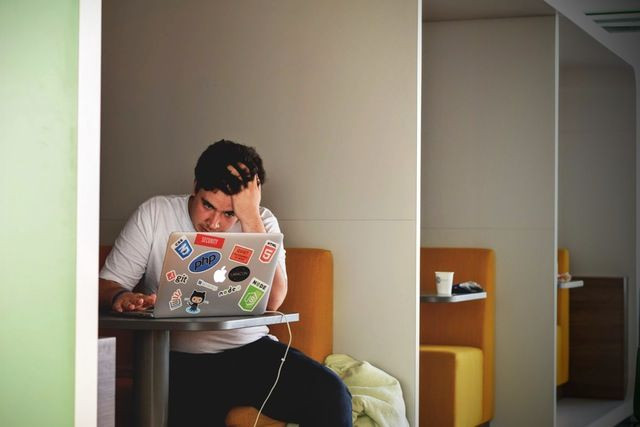4 Surprising Anxiety Triggers And How To Calm Yourself Down

Are you aware of the common conditions that can trigger fear or panic? Anxiety disorders affect around 18 percent of the population, according to the Anxiety and Depression Association of America (ADAA). When someone struggles with such a condition, whether social anxiety or obsessive-compulsive disorder, the symptoms can affect how they live their everyday lives.
Anxiety is a complex disorder and each case is unique, but there are some common habits and conditions that can trigger the familiar overwhelm of anxiety. We’ve listed four surprising triggers, and how to calm down.
FEAR OF THE UNKNOWN
Researchers from the University of Illinois at Chicago just published a study reporting that people with anxiety disorders all experience increased sensitivity to uncertain threats, or fear of the unknown. It's the feeling that something, at any time, could go wrong, but the sufferer doesn't have concrete evidence that anything bad is about to happen.
“Knowing that sensitivity to uncertain threat underlies all of the fear-based anxiety disorders also suggests that drugs that help specifically target this sensitivity could be used or developed to treat these disorders,” said the study’s lead author Dr. K. Luan Phan.
ALCOHOL AND DRUGS
People with PTSD typically also have problems with substance abuse, according to the Anxiety and Depression Association of America (ADAA). Sadly, people suffering from the anxiety disorder often use alcohol or drugs to try to ease these feelings, but abuse can actually exacerbate symptoms.
Alcohol abuse is also common among people who have social anxiety disorder.
HEART PROBLEMS
"After a heart attack or heart surgery, about one-third of people experience anxiety symptoms such as heart palpitations and shortness of breath," Everyday Health reported.
When the brain feels anxious, the body puts strain on the heart.
“It’s my view and my personal clinical experience that anxiety disorders can play a major role in heart disease,” said Professor of Psychiatry and Behavioral Sciences Dr. Una McCann, on Johns Hopkins School of Medicine’s website. “I believe that a really careful look at anxiety would reveal the ways it can severely impact heart disease, both as a contributing factor and as an obstacle in recovery.”
CAFFEINE
If you drink coffee, you know it makes you feel a bit jittery and can increase heart rate. On its own, caffeine does not create anxiety, but if you already have symptoms, they may become worse, Calm Clinic reported.
HOW TO CALM DOWN:
Breathe … slowly and deeply.
Have some extra time to chill? Check out this video below to practice Adriene Mishler ’s “Yoga for Anxiety.”
Read more:
Normal Anxiety vs. Anxiety Disorder: Signs, Symptoms To Tell The Difference
Published by Medicaldaily.com



























